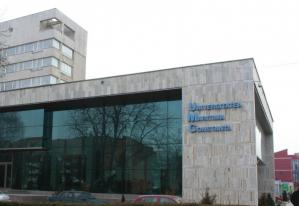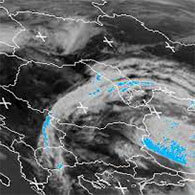Eurozone peripheral economies are gaining competitiveness and capitalizing on higher tourist numbers
Eurozone peripheral economies are gaining competitiveness and capitalizing on higher tourist numbers
20 Aug, 2013 14:20
ZIUA de Constanta
 1591
Marime text
1591
Marime text
 1591
Marime text
1591
Marime text
Bucharest, 20 August 2013 – Europe’s crisis struck peripheral economies are slowly gaining back competitiveness and capitalizing on higher tourist numbers, shows a recent PwC analysis.
For the first summer in three years, there is not an apparent crisis brewing in the Eurozone. A number of factors have helped to reduce short term risks facing the peripherals including Quantative Easing and the European Central Bank’s (ECB) commitment to ‘do whatever is necessary’ using the bond buying programme. As a result, yields on peripheral government bonds are 2-3% lower than this time last year. However, that does not mean that the peripheral economies of Portugal, Italy, Ireland, Greece and Spain in particular, are out of danger yet.
A key aspect of restoring balance within the euro area involves peripheral economies regaining competitiveness. Labour costs have fallen by around 20-30% over the past 4 years. However, one-off factors like falling wages and rising unemployment account for most of the change. While costs have fallen, reforms to labour markets to boost wage flexibility have been lacking. This poses a risk that competitiveness will be eroded through the next growth cycle as labour markets recover in line with economic growth.
Falling costs have proved good news for tourism, a key industry for several peripheral economies. Receipts from tourism can make up almost 5% of GDP, and growth in tourism (as high as 23% since 2009 in Spain) provide a good news story.
Peripheral governments have made reasonable progress in reducing their deficits, albeit from a poor starting point. However, continued recession is working against them. PwC forecasts show the peripheral economies shrinking by 1% or more in 2013. This is aggravating debt problems through two channels. Total debt levels will continue to rise until deficits are closed, and at the same time debt/GDP levels increase as the economy shrinks further. Debt is also an issue for the private sector, and the banking system remains frail. An upcoming ECB asset quality review will hopefully remove some uncertainty over the health of many banks operating in the periphery.
The most visible area of pain continues to be the labour market, with unemployment continuing to rise, in some cases at twice the rate of the Eurozone average. In the short term, this represents a major drag on domestic demand and business and consumer confidence. Long term unemployment and the elevated levels of youth unemployment risk a scarring of the economy and productivity as skills are permanently lost.
While peripheral European economies are still highly stressed, the tail risks of defaults and exit have receded dramatically over the previous 12 months. Recent confidence indicators like the Purchasing Managers Index (PMI) suggest that the rate of contraction is slowing, and a stabilisation could come later in the year. Businesses which are looking to invest for the long term, and are willing to ride out further short term risks, could find themselves well positioned as these economies start to recover.
Notes to Editor
To download the full report, please go to http://www.pwc.co.uk/economic-services/global-economy-watch/peripheral-europe-summertime-but-the-living-is-not-easy.jhtml
About PwC
PwC helps organisations and individuals create the value they’re looking for. We’re a network of firms in 158 countries with more than 180,000 people who are committed to delivering quality in assurance, tax and advisory services. Tell us what matters to you and find out more by visiting us at www.pwc.com/ro
PwC refers to the PwC network and/or one or more of its member firms, each of which is a separate legal entity. Please see www.pwc.com/structure for further details.
© 2013 PwC. All rights reserved.
For the first summer in three years, there is not an apparent crisis brewing in the Eurozone. A number of factors have helped to reduce short term risks facing the peripherals including Quantative Easing and the European Central Bank’s (ECB) commitment to ‘do whatever is necessary’ using the bond buying programme. As a result, yields on peripheral government bonds are 2-3% lower than this time last year. However, that does not mean that the peripheral economies of Portugal, Italy, Ireland, Greece and Spain in particular, are out of danger yet.
A key aspect of restoring balance within the euro area involves peripheral economies regaining competitiveness. Labour costs have fallen by around 20-30% over the past 4 years. However, one-off factors like falling wages and rising unemployment account for most of the change. While costs have fallen, reforms to labour markets to boost wage flexibility have been lacking. This poses a risk that competitiveness will be eroded through the next growth cycle as labour markets recover in line with economic growth.
Falling costs have proved good news for tourism, a key industry for several peripheral economies. Receipts from tourism can make up almost 5% of GDP, and growth in tourism (as high as 23% since 2009 in Spain) provide a good news story.
Peripheral governments have made reasonable progress in reducing their deficits, albeit from a poor starting point. However, continued recession is working against them. PwC forecasts show the peripheral economies shrinking by 1% or more in 2013. This is aggravating debt problems through two channels. Total debt levels will continue to rise until deficits are closed, and at the same time debt/GDP levels increase as the economy shrinks further. Debt is also an issue for the private sector, and the banking system remains frail. An upcoming ECB asset quality review will hopefully remove some uncertainty over the health of many banks operating in the periphery.
The most visible area of pain continues to be the labour market, with unemployment continuing to rise, in some cases at twice the rate of the Eurozone average. In the short term, this represents a major drag on domestic demand and business and consumer confidence. Long term unemployment and the elevated levels of youth unemployment risk a scarring of the economy and productivity as skills are permanently lost.
While peripheral European economies are still highly stressed, the tail risks of defaults and exit have receded dramatically over the previous 12 months. Recent confidence indicators like the Purchasing Managers Index (PMI) suggest that the rate of contraction is slowing, and a stabilisation could come later in the year. Businesses which are looking to invest for the long term, and are willing to ride out further short term risks, could find themselves well positioned as these economies start to recover.
Notes to Editor
To download the full report, please go to http://www.pwc.co.uk/economic-services/global-economy-watch/peripheral-europe-summertime-but-the-living-is-not-easy.jhtml
About PwC
PwC helps organisations and individuals create the value they’re looking for. We’re a network of firms in 158 countries with more than 180,000 people who are committed to delivering quality in assurance, tax and advisory services. Tell us what matters to you and find out more by visiting us at www.pwc.com/ro
PwC refers to the PwC network and/or one or more of its member firms, each of which is a separate legal entity. Please see www.pwc.com/structure for further details.
© 2013 PwC. All rights reserved.
Urmareste-ne pe Grupul de Whatsapp
Comentarii
 Fondul Documentar Dobrogea de ieri și de azi
Fondul Documentar Dobrogea de ieri și de azi








_thumb2.jpg)

























